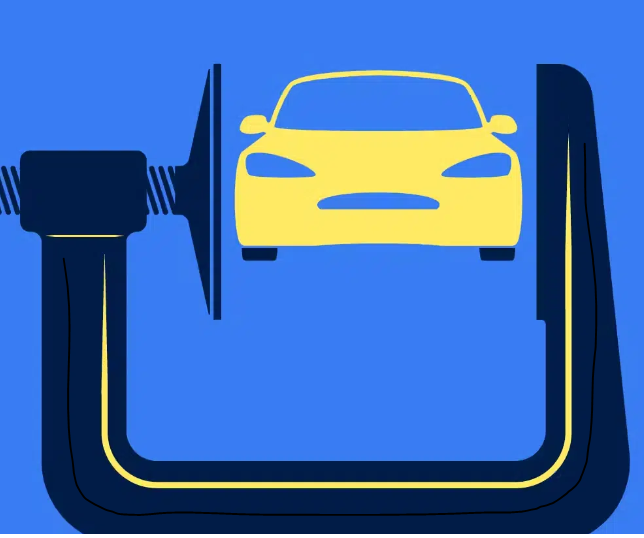When applying for a car loan, one of the most important factors lenders consider is your credit score. Your credit score is a numerical representation of your creditworthiness, and it plays a significant role in determining whether or not you will be approved for a loan.
1. Understanding Your Credit Score and Its Importance
Your credit score is a three-digit number that ranges from 300 to 850, with higher scores indicating a better credit history. It is calculated based on various factors, including your payment history, the amount of debt you owe, the length of your credit history, new credit inquiries, and the types of credit you have used. Lenders use your credit score to assess how likely you are to repay the loan on time, and a higher score typically indicates a lower risk to lenders.
For car loans, your credit score will determine both your eligibility and the terms of your loan. Lenders use the score to decide whether to approve or deny your application, as well as the interest rate you will be offered. A strong credit score increases your chances of securing a loan with favorable terms, while a lower score may result in higher interest rates or even loan rejection.
2. How Your Credit Score Affects Your Car Loan Eligibility
Lenders typically categorize credit scores into several ranges: poor, fair, good, and excellent. The higher your credit score, the more likely you are to be approved for a car loan, as lenders view you as a lower-risk borrower. Here’s how different credit score ranges can impact your car loan eligibility:
- Excellent (750 and above): If your credit score falls into the excellent range, you are more likely to receive approval for a car loan with the best possible terms, including the lowest interest rates. Lenders may even offer you incentives, such as cash rebates or special financing options.
- Good (700-749): A good credit score means you are a reliable borrower, and you will likely receive a competitive interest rate. While not as favorable as the excellent range, a good score still qualifies you for many loan options with favorable terms.
- Fair (650-699): A fair credit score means you may still be approved for a car loan, but expect higher interest rates compared to those with excellent or good scores. The terms of your loan may not be as favorable, and you may have fewer loan options to choose from.
- Poor (below 650): If your credit score is below 650, you may find it difficult to secure a car loan. If you are approved, the interest rates will likely be much higher, and the loan terms may not be as flexible. In some cases, lenders may require a larger down payment or a co-signer to reduce the risk.
3. The Impact of Credit Score on Interest Rates
One of the most significant ways your credit score impacts your car loan is through the interest rate. Interest rates determine the total cost of your loan, and even a small difference in the rate can significantly affect your monthly payments and the total amount paid over the life of the loan.
- Low Credit Score: A low credit score typically results in higher interest rates, meaning you will end up paying more in interest over time. For example, someone with a credit score of 600 may face an interest rate of 10% or higher, while someone with a score of 750 could secure a rate as low as 3%. This difference can add up to thousands of dollars over the life of the loan.
- High Credit Score: On the other hand, a higher credit score allows you to secure lower interest rates, which translates into lower monthly payments and less paid in interest. A lower rate can make a significant difference in your overall financial picture, especially if you plan to finance the car for several years.
4. What You Can Do to Improve Your Credit Score Before Applying
If your credit score isn’t where you want it to be, there are steps you can take to improve it before applying for a car loan. Taking the time to boost your score can help you qualify for a better loan with more favorable terms.
- Pay Bills on Time: Your payment history makes up a significant portion of your credit score. Ensuring that you pay all of your bills on time, including credit cards, loans, and utilities, can have a positive impact on your score.
- Pay Down Debt: The amount of debt you owe, particularly on credit cards, can negatively impact your score. Reducing your outstanding balances can help improve your credit utilization ratio, which accounts for about 30% of your credit score.
- Check Your Credit Report for Errors: Errors in your credit report can drag down your score. It’s essential to review your credit report regularly and dispute any inaccuracies with the credit bureaus. This can help improve your score and, in turn, increase your chances of loan approval.
- Avoid Opening New Credit Accounts: Opening new credit accounts can temporarily lower your credit score, as it results in hard inquiries. If you’re planning to apply for a car loan, try to avoid making large credit purchases or opening new accounts in the months leading up to your application.
5. Improving Your Chances of Loan Approval with a Strong Credit Score
If you’re in the process of improving your credit score, there are also some other strategies that may help you get approved for a car loan, even if your score is on the lower end:
- Consider a Co-Signer: A co-signer with a higher credit score can help secure a loan for you and may result in better terms. However, remember that your co-signer is responsible for the loan if you fail to make payments, so this should be done with careful consideration.
- Save for a Larger Down Payment: A larger down payment shows lenders that you are financially responsible and can help offset a lower credit score. A larger down payment also reduces the loan amount, which may help you secure better loan terms.
- Shop Around for the Best Deal: Different lenders offer different terms, so it’s essential to shop around and compare loan offers. Consider banks, credit unions, and online lenders, as they may have different criteria for approving loans and setting interest rates.
Conclusion
Your credit score is one of the most important factors that lenders use when evaluating your eligibility for a car loan. A higher score increases your chances of being approved for a loan with favorable terms and lower interest rates, while a lower score may result in higher rates or loan rejection. By understanding how your credit score affects your car loan approval and taking steps to improve it, you can increase your chances of securing the financing you need for your next vehicle. Always remember to shop around, improve your credit score, and consider all your options before committing to a car loan.




